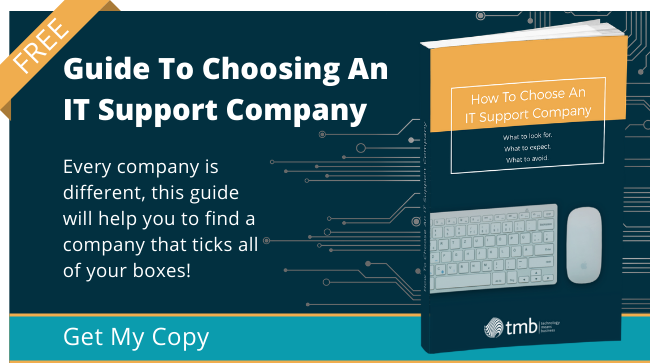Improving The Relationship With Your IT Supplier (And When To Look For IT Services Elsewhere)
Companies are reliant on their IT systems to perform to their full potential. For this reason, the quality of the relationship between the client and the IT supplier is key. An IT support service that doesn't run smoothly leads to client frustration. Worse still, a poor service can impact efficiency and reduce business productivity, even leading to loss of revenue. To build a satisfactory and productive working relationship with your IT supplier, follow this straightforward three-point plan.

1) Use Effective Communication Channels
Agreement between the IT supplier and client about how and when to communicate is crucial. This might involve a range of different ways, depending on the context. Outside of the usual email or call to get support in a crisis, regular contract review meetings can provide the opportunities to resolve any emerging issues. If the organisation is smaller or uses an agile environment, it might be more appropriate to utilise a digital platform such as Trello or Slack for informal communications.
2) Be Proactive
It’s important to let a prospective IT supplier know how tech-savvy the company's workforce is. In some settings, staff might struggle to articulate what the problem is to the provider. When the supplier is aware of the employee context, it allows them to provide the most effective solutions to keep systems operating properly. This collaborative approach ensures that the supplier can negotiate a contract for IT supplies and support that meets all the organisation's needs.
3) Set Clear Expectations
Whether signing with a new IT supplier or renewing a service contract with an existing one, it’s important to have a full awareness of what's included with the service. It is no good if the business needs hands-on technical support when the contract only includes remote support and a helpline. If the support the business needs wasn’t written into the terms in the first place, there are no measures available to performance-manage the contract. If the contract is comprehensive, and the supplier isn’t fulfilling the terms of the contract, the business can impose penalties.
Developing some key performance indicators (KPIs) as part of the contract will be useful to manage supplier performance. These might include the length of time taken to respond to technical queries or resolve faults, as well as customer satisfaction levels.
Call It A Day
Sometimes, even with best efforts, if the other side isn't co-operative, things won’t change. Historic contracts that have rolled over without negotiation can allow bad habits to creep in, with suppliers taking the client’s business for granted.
If after trying all of the above, there is no improvement, don’t be afraid to call it a day and find a new supplier - a new supplier will be keen to win your business. This provides an excellent opportunity to begin with a clean sheet and establish the kind of IT supplier relationship that the business requires.
What Next?
For a free quote or to discuss your managed IT requirements, please get in touch today!
Image source: Pexels


